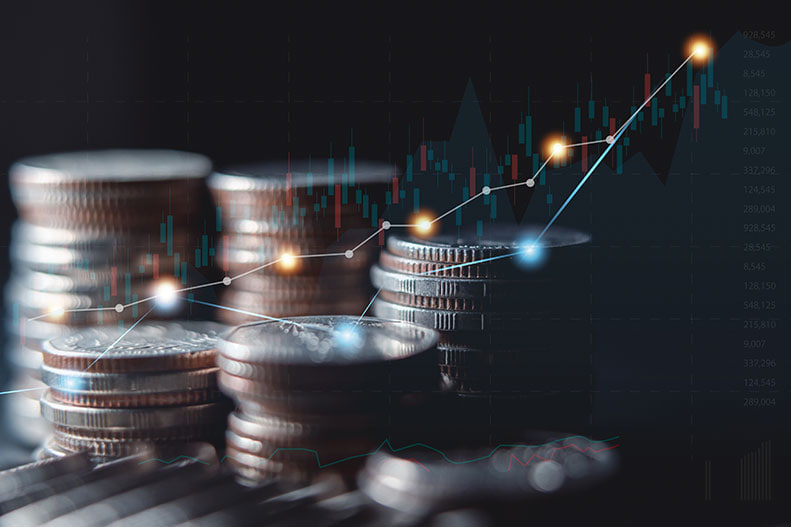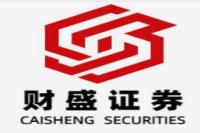Hong Kong Market Dip: Analyzing the November 6th Decline and Future Outlook (SEO Meta Description: Hong Kong stock market, Hang Seng Index, Hang Seng Tech Index, real estate sector, Longfor Group, Guoquan, stock market analysis, investment strategy)
Dive deep into the intricacies of the Hong Kong stock market's recent downturn! On November 6th, 2023, the Hang Seng Index experienced a significant dip, sending ripples throughout the financial world. Was it a mere blip, a temporary correction, or a harbinger of larger economic woes? This isn't just another dry market report; it's a detailed analysis that goes beyond the headlines, unpacking the contributing factors, exploring the performances of key players like Longfor Group and Guoquan, and offering insights into potential future trends. We'll delve into the complex interplay of macroeconomic factors, sector-specific challenges, and individual company performance, all through the lens of seasoned market observation and data-driven analysis. Prepare to gain a comprehensive understanding of this significant market event, equipping you with the knowledge to navigate the ever-changing landscape of Hong Kong's financial ecosystem. Forget dry statistics; we'll uncover the human story behind the numbers, exploring the real-world consequences for investors and businesses alike. This isn't just about percentages and graphs; it's about understanding the why behind the market's movements and how this knowledge can inform your investment decisions. So, buckle up and prepare for a journey into the heart of the Hong Kong market's recent volatility. It's time to separate fact from fiction and gain a clear, actionable perspective on this crucial market event.
Hang Seng Index and its Components: A Deep Dive
The November 6th decline in the Hang Seng Index (HSI) and the Hang Seng Tech Index (HSTI) wasn't an isolated incident. It reflects broader anxieties within the global and regional economies. The 1.02% and 1.01% drops, respectively, signaled a palpable shift in investor sentiment. While a single day's performance doesn't define a long-term trend, it's crucial to analyze the contributing factors to understand the potential implications. The underperformance of the real estate sector, exemplified by Longfor Group's over 3% decline, highlights the ongoing challenges facing this crucial segment of the Hong Kong economy. This isn't just about bricks and mortar; it's about investor confidence in the long-term stability of the property market and the overall economic outlook. Conversely, Guoquan's announcement of a potential HK$100 million share buyback program injected a degree of optimism, suggesting a belief in the company's future prospects and a strategic move to boost investor confidence. This is a classic case of contrasting narratives within a single market day.
The interconnectedness of global markets cannot be overstated. Geopolitical events, interest rate hikes, and shifts in global demand all play a significant role in shaping the HSI's trajectory. Analyzing these broader factors provides a more complete picture than focusing solely on individual stock movements. For instance, rising interest rates in the US can impact capital flows into emerging markets like Hong Kong, potentially leading to increased volatility.
Understanding the Real Estate Sector's Weakness
The real estate sector's weakness is a recurring theme in recent Hong Kong market analysis. Several factors contribute to this persistent underperformance:
- High Interest Rates: Rising interest rates increase borrowing costs, impacting both developers and potential homebuyers. This dampens demand and puts pressure on property prices.
- Regulatory Changes: Government regulations aimed at cooling the property market, such as stricter lending rules, also play a significant role.
- Economic Uncertainty: Global economic uncertainty contributes to investor hesitancy, impacting the attractiveness of real estate investments.
This isn't simply a localized issue; it reflects broader global trends affecting real estate markets worldwide. The Hong Kong market, however, is particularly sensitive due to its high property prices and reliance on external capital.
Guoquan's Strategic Buyback: A Sign of Confidence?
Guoquan's decision to potentially repurchase up to HK$100 million of its own shares deserves close scrutiny. This is a bold move that signals a degree of confidence in the company's future performance. Share buybacks can be interpreted as a vote of confidence, suggesting that management believes the stock is undervalued. However, it's important to consider the potential motivations behind such a move. It could also be a strategic attempt to increase the share price, potentially benefiting existing shareholders. Further investigation into Guoquan's financial health and future growth prospects is warranted before drawing definitive conclusions.
This contrasts sharply with Longfor Group's performance, highlighting the diversity of outcomes within a single market sector.
Key Factors Influencing the Hong Kong Stock Market
Several key factors significantly influence the Hong Kong stock market's performance, including:
| Factor | Impact |
|-----------------------|----------------------------------------------------------------------|
| Global Economic Growth | Strong global growth typically boosts Hong Kong's market, while weakness dampens it. |
| US Interest Rates | Higher US rates can attract capital away from Hong Kong, increasing volatility. |
| China's Economic Growth | China's economy is deeply intertwined with Hong Kong's; its health is crucial. |
| Geopolitical Events | Global political instability can negatively affect investor sentiment. |
| Regulatory Changes | Changes in Hong Kong's regulations can significantly impact various sectors. |
Understanding these interconnected factors is critical to predicting and navigating the market's fluctuations. It requires a holistic approach, considering both internal and external influences.
Frequently Asked Questions (FAQ)
Q1: What caused the Hang Seng Index decline on November 6th?
A1: The decline was likely a confluence of factors, including global economic uncertainty, weakness in the real estate sector, and broader investor concerns. It's not attributable to a single cause.
Q2: Is this a sign of a larger market downturn?
A2: It's too early to definitively say. A single day's performance doesn't predict long-term trends. Further observation and analysis are needed.
Q3: How does the US interest rate affect the Hong Kong market?
A3: Higher US interest rates can attract capital away from Hong Kong, potentially leading to decreased investment and market volatility.
Q4: What is the significance of Guoquan's share buyback?
A4: It suggests confidence in the company's future prospects, but further analysis is needed to fully understand its implications.
Q5: What should investors do in light of this market dip?
A5: Investors should maintain a balanced portfolio, diversify their investments, and conduct thorough due diligence before making any significant changes.
Q6: What are the long-term prospects for the Hong Kong stock market?
A6: The long-term outlook depends on numerous factors, including global economic growth, China's economic performance, and Hong Kong's own policy decisions. It's crucial to stay informed and adapt your investment strategy accordingly.
Conclusion
The November 6th decline in the Hong Kong stock market serves as a reminder of the inherent volatility in global financial markets. While a single day's performance doesn't define a long-term trend, it highlights the importance of understanding the interplay of various economic and geopolitical factors. By analyzing the performance of key sectors, individual companies, and broader market trends, investors can gain a more nuanced understanding of the market's dynamics and make informed decisions. Remember, staying informed, diversifying your portfolio, and adapting your investment strategy based on the latest information are key to navigating the complexities of the Hong Kong stock market and achieving your financial goals. Don't just react to the headlines; understand the underlying forces shaping the market. This is crucial for effective long-term investment success.



